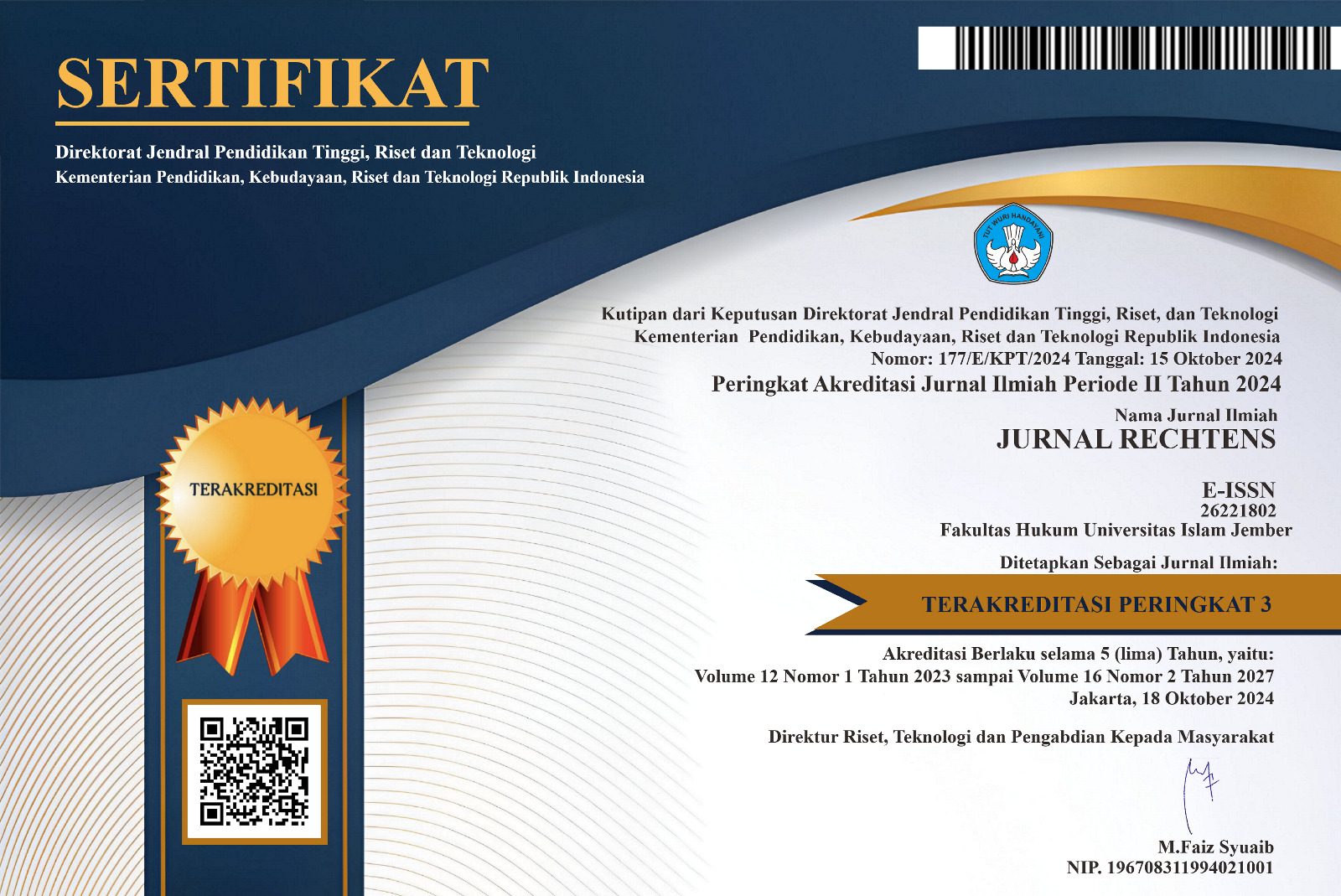Hak Narapidana Tindak Pidana Narkotika untuk Memperoleh Pembebasan Bersyarat
DOI:
https://doi.org/10.36835/rechtens.v7i1.365Abstract
In the criminal law enforcement process there is a provision concerning criminal sanctions in which the imposition of criminal sanctions for convicted offenders has a purpose. The purpose of giving criminal sanctions should be to foster not only serve as retaliation. Correctional institutions as implementers of the objective of punishment in the penal system as referred to in the Act, is a series of law enforcement that aims to ensure that the prisoners are aware of their mistakes, to improve themselves, and not to repeat the criminal acts so that they can be re-accepted by the community, actively participate in the development , And can live fairly as a good and responsible citizen.In an effort to re-populate the perpetrators of crime, Penal Institution through Act Number 12 of 1995 on Correctional regulation provides for the right of prisoners. In Article 14 paragraph (1) point k of Law Number 12 of 1995 states that "Prisoners are entitled to parole". The problem that arises is the additional condition of granting parole for Narcotics inmates in 2012 as the Government Regulation Number 99 of 2012 was issued.The results of this study indicate that the granting of additional terms on conditional exemption for prisoners of narcotic criminal offenses under Government Regulation No. 99 of 2012 is inconsistent with the purpose of Corrections since such additional terms do not reflect the human rights guarantees of the Prisoners which are the absolute right of all inmates.
















